Veni, Vidi and Vici grants awarded to the University of Groningen in 2024
Grants awarded by the Netherlands Organisation for Scientific Research (NWO-Talent Programme).
Vici awards
The Vici grant targets senior researchers who have successfully demonstrated the ability to develop their own innovative lines of research. In doing so, they have also supervised young researchers. Researchers who receive a Vici grant have the opportunity to further develop their research group, often in anticipation of a tenured professorship, if they do not already have one.
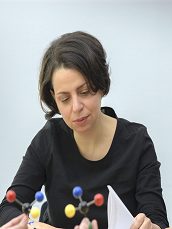
Prof. Natalie Katsonis - The origin of primitive cells in the first ocean
The research for which Prof. Nathalie Katsonis (Faculty of Science and Engineering, Stratingh Institute for Chemistry) has been awarded a Vici grant concerns the origins of primitive cells in the first ocean. The origin of life on Earth stands as one of the great mysteries of science. Researchers have long concluded that the chemical reactions that allowed life to emerge took place in microscopic compartments, called protocells. However, it is still not known how these protocells were formed. With this grant, researchers will explore the possibility that protocells were made of lipids, formed by solar irradiation of a primordial oil layer that covered the ocean. The results of this research will also apply to an important contemporary issue: the mitigation of environmental damage by treatment and removal of polluting oil spills.
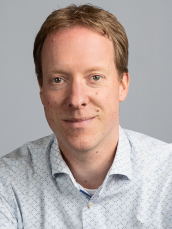
Prof. Edwin Otten - Development of batteries made from organic material
The grant awarded research project of Prof. Otten (Faculty of Science and Engineering, Stratingh Institute for Chemistry) investigates how to build better batteries with organic molecules. In this project the researchers will develop flow batteries based on abundant elements to replace the scarce metals that are currently used. Bipolar organic molecules will be developed as the charge-storage material for symmetrical batteries, in which the + and – pole have identical chemical composition. This results in increased lifetime and lower cost, and thus represents a major step towards more sustainable batteries for the efficient storage of renewable energy.
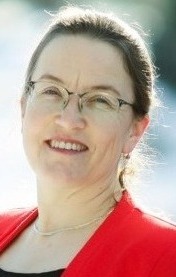
Prof. Alexandra Zhernakova - Immune-microbiome interactions in allergic diseases in children
The grant awarded to Prof. Zhernakova (UMCG) is to look into early life immune-microbiome interactions in allergic diseases. Allergic diseases have multiple causes, most of which are unknown. In a large cohort of mothers and babies, the researchers will study the relationships between maternal and infant antibodies and their gut and oral microbiomes, their interactions with diet, genetics and environment, and how these factors together influence developing allergies in infants. Using advanced culturing and organ-on-a-chip experiments, the researchers will pinpoint specific immune-related microbes and metabolites and their impact on both the gut and immune system. The findings from this research will promote the development of microbiome-based therapy for allergies
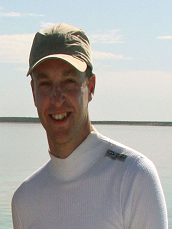
Prof. Tjisse van der Heide - Restoring artificial ecosystems
Prof. Van der Heide (Faculty of Science and Engineering, Groningen institute for Evolutionary Life Sciences), Professor of Coastal Ecology, was also awarded a Vici grant. This research, from NIOZ, looks at the restoration of coastal ecosystems by temporarily mimicking the habitat-forming species. Coastal ecosystems shaped by habitat-forming species provide vital ecosystem services but are declining worldwide. Their restoration is failure-prone because ecosystem stability hinges on self-facilitation generated by ‘emergent traits’. Such traits emerge when habitat formers aggregate, causing self-facilitation to only work beyond certain minimum patch size and density thresholds. With this grant, a new framework that combines methods from ecology, industrial design, and engineering to design tailormade mimics will be tested.
Vidi awards
Vidi grants are intended for experienced researchers who have been conducting successful research for some years after gaining a PhD. With this grant, the researchers can develop their own innovative five-year research plans and can establish their own research groups.
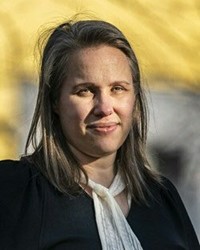
Dr. Laura Baams - LGBTQ+ Youth in Europe: What Causes Differences in Wellbeing to Persist?
This project delves into why, despite growing acceptance, LGBTQ+ youth still face poorer wellbeing in Europe. Researchers will investigate if laws and policies have reduced bullying and discrimination against LGBTQ+ youth. They will also analyse videos on YouTube and TikTok to understand how LGBTQ+ youth experience stigma and identity online. Additionally, researchers will launch the first long-term study of LGBTQ+ youth in the Netherlands, gathering daily feedback on their identity development and experiences with discrimination. By combining these approaches, the project aims to shed light on the factors influencing LGBTQ+ youth wellbeing.
Dr. M.J. Bonder - Decoding rare genetic variation: Unraveling isoform impact on rare diseases
Many different rare genetic diseases exist and they collectively impact a significant portion of the population. Advances in DNA sequencing technologies have recently improved the diagnostic yield for these conditions. However, our limited understanding of what genetic variation outside of genes does, combined with our still limited understanding of what different isoforms of genes do, makes further diagnostic gains a challenge. In this project, I will systematically investigate how DNA differences affect isoforms, and I will utilize this knowledge to identify which DNA alteration is responsible for rare diseases in more patients.
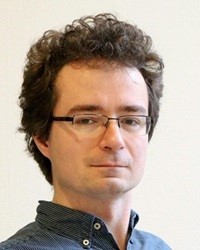
Dr. Ranko Gacesa - How do microbes in our body evolve? And how does it affect our health?
Our bodies are inhabited by trillions of microbes that aid us in digestion, protect us against hostile microbes, and perform other functions critical to our health. Like all living things, the microbes in our body change – evolve – over time. Yet this evolution, and its impact on our health, remain largely unknown. In this project, researchers will investigate evolution of gut microbes within individuals over the time-period of 15 years to answer which microbes change over time, how they change, and how their evolution differs between healthy individuals and patients with chronic gastrointestinal diseases.
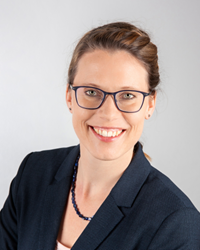
Dr. Kristina Haslinger - The biochemist’s alchemy - enzyme-powered innovation in pharmaceutical production
Many pharmaceutical drugs are based on chemicals found in nature. These chemicals are produced by plants, fungi, and bacteria with the help of specialized biocatalysts (enzymes). Biochemists can “borrow” these enzymes to build valuable chemicals on a large scale and in an environmentally friendly way. They can also produce new versions of such chemicals, with even more powerful pharmaceutical properties, by mixing and matching enzymes from different organisms in a combinatorial fashion. In this project, scientists will expand the catalogue of enzymes available for such a combinatorial approach and develop sustainable production routes for important pharmaceuticals.

Dr. Julian Koellemeier - HiWAVE - Natural hazard prediction with adaptive hierarchical wave models
Natural disasters such as tsunamis, avalanches and floods are waves that we need to simulate to improve acute response and long-term risk assessment and prevention. This requires mathematical models that need to balance accuracy and runtime to be efficient.
HiWAVE aims at replacing available case-tailored models by new model hierarchies that allow the use of different models simultaneously to adapt simulations to an efficient combination of speed and accuracy. This will change the way we derive mathematical models and leads to highly efficient simulations that help us predict and prevent damage from future natural disasters.
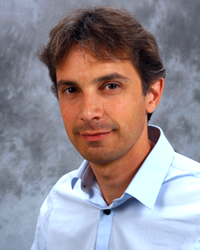
Dr. Cyril Moers - Using a pump to store donor kidneys almost indefinitely
In this project, scientists will work on a radically new method to prolong the storage time of donor kidneys. They will use an advanced pump system to continuously circulate a novel fluid through the kidney. This fluid remains liquid while the organ is cooled to temperatures well below 0°C, thus enabling safe, long-term storage of whole donor organs. This would allow worldwide organ banking and exchange, and greatly improve organ-to-patient matching, thus improving outcomes. Moreover, transplants could be planned well in advance, thus reducing complications and enhancing access to transplantation.
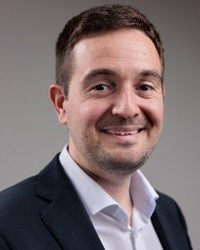
Dr. Adrià Rofes - Improving brain tumor surgery with linguistics
To avoid difficulties with language production, adults undergoing brain tumor surgery are asked to name pictures of objects (e.g., bike). As a neurolinguist, I showed that naming pictures of actions (e.g., swimming) can detect more and different brain areas – this task is now used in several hospitals. Today, I have the knowledge and the network to study a majorly neglected process: language comprehension. I will implement two new tasks and use top-end neuroimaging and computational methods. This research will improve our understanding of language (in the brain) and provide better services to avoid language damage during surgery.
In addition to the above recipients, Judith Verweijen will also receive a Vidi grant. Verweijen made her application while she was still working at the Faculty of Arts. However, she is working at Utrecht University now. She receives the Vidi grant for her research Centring Armed Organizations in the Climate-Conflict Nexus (CLIMCON). CLIMCON generates new insights into the multidirectional links between climate change and armed conflict.
Veni awards
Veni is aimed at excellent researchers who have recently received their doctorates. Laureates can use this amount to further develop their own research ideas for three years.
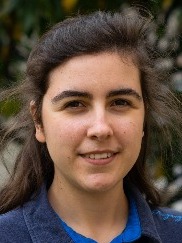
On the fly: understanding multiscale turbulence through animal fight
Ariane Gayout
, Faculty of Science and Engineering
When on a plane, turbulence raises concerns over one’s safety due to the shaking of the plane. Animals yet fly continuously in such environment. This project uses insects, like butterflies and ladybugs, to explore how they adapt to turbulence in controlled experiments. Studying the physics of these insects will lead to better understanding of turbulence and novel bio-inspired control for planes and drones based on animal learning.
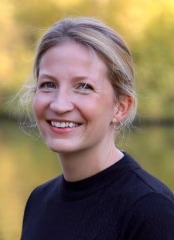
Designing crops for a salty future
Kira Tiedge
, Faculty of Science and Engineering
Around the globe, agricultural areas are endangered by an increase of salts in the soil. This salinization reduces the yield and nutritional quality of crops grown in these areas, which poses a serious threat to our food supply. This project investigates how metabolic substances in plants can be used to increase the resistance of important crops to salinization. The results will help to develop new crop varieties that can withstand current and future climate-driven stressors to enable sustainable crop production and ensure food security.
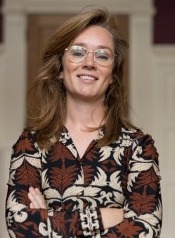
Protecting Homes: understanding the impact of housing and property rights in Dutch eviction cases
Mr. dr. Michelle Bruijn
, Faculty of Law
Thousands of people are evicted annually in the Netherlands and forced to leave their homes. This has devastating effects on people’s physical and mental health and goes against the fundamental human rights of housing and property. However, how people are protected against evictions is unclear. Bruijn investigates how Dutch courts protect citizens from eviction and assess the impact of the rights to housing and property on these decisions. By combining legal research with innovative machine learning techniques and creating the online tool Phria, this project advances our understanding of eviction protection and the role of human rights in judicial decision-making.
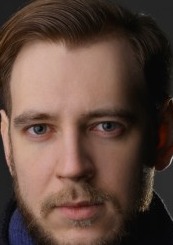
Alternative Legalities: how the Russian invasion of Ukraine fractures international law
Kostia Gorobets
, Faculty of Law
Russia justifies the invasion of Ukraine not by pointing at specific rules and treaties, but through historical examples and myths: an appeal to NATO expansion and condemnation of Western hypocrisy are accompanied by references to Russia’s sovereignty, its glorious past and the uniqueness of Russian civilization. This constructs a parallel legal reality in which rules no longer play a central role and which infringes on international law as a universal system of norms for the conduct of states. This legal philosophical research project analyzes this alternative version of international law and its imperialistic potential.
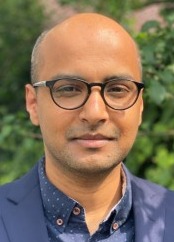
Time out for well being: the algorithmic cure for employee fatigue
Arpan Rijal
, Faculty of Economics and Business
Worker shortages and frequent employee turnover are often linked to insufficient employee well-being in the workplace. However, existing personnel scheduling optimization, which develops models and algorithms for work-rest and task allocation schedules, primarily emphasizes efficiency metrics. These highly efficient schedules often come at the cost of stressed employees and even productivity losses. This project proposes a novel approach to personnel scheduling that minimizes physical fatigue which is a large determinant of overall well-being. In doing so, this project will develop mathematical models and algorithms that have the potential to improve employee well-being in a variety of labor-intensive workplaces.

Who benefited from colonialism? The distribution of colonial profits of the Netherlands, 1860s-1950s
Amaury De Vicq de Cumptich
, Faculty of Economics and Business
We know that colonizing nations profited greatly from colonialism, but not how these colonial profits were distributed within the nations. Who profited the most? This project will answer this question for the case of the Netherlands. By analyzing recently digitized financial data and succession tax records, the profitability of colonial businesses as well as the primary beneficiaries of colonial investments will be revealed. The outcomes will contribute to a better understanding of our colonial past, provide more nuance to the ongoing discussions on colonial reparations, and support the debate on Dutch wealth inequality.
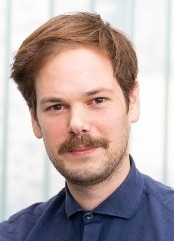
Reorienting global gaming: how Western games adapt to Chinese worldviews
Dr. Lars de Wildt
, Faculty of Arts
Videogames spread mostly Western worldviews. Because games are so expensive to make, they often stick to tried-and-true formulas. But to appeal to China as a growing market, games must be adapted to Chinese consumers and the strict regulations of their state. But how do they prevent alienating their international audience? So far, game developers have made separate versions of their games for Chinese audiences, which is even more expensive. It is likely that developers are increasingly adapting their games to Chinese worldviews from the start. By studying this process of adaptation, researchers learn how China is re-shaping global media culture.
Fact, fiction and deception in the digital age: a formal semantic exploration of impure discourses
Merel Semeijn, Faculty of Philosophy
Recent advances in artificial intelligence and the omnipresence of social media create new kinds of language-uses, and new roles for existing language-uses. This project in analytic philosophy of language investigates three modern types of speech that are ‘impure’, i.e., that move between ‘fact’, ‘fiction’ and ‘lie’: hoaxes (spread by social media), conversations with chatbots, and gossip-media (e.g., juice-channels). The project combines concepts and formal tools from philosophy, semantics, logic, AI-research, aesthetics and media studies to produce precise theoretical explication of these discourses. Results of this project will empower consumers to develop their independent understanding of modern media.
ADHD: It's not just the child
Tycho Dekkers, UMCG
ADHD is the most commonly diagnosed mental disorder in children. Yet, a potential negative consequence of diagnosing children’s behavior as ADHD is decontextualization: attributing problems predominantly to the child whilst ignoring the interaction between the child and the context. In this project, I will investigate to what extent diagnosing ADHD causes decontextualization, which negative consequences this may have and how these consequences can be prevented.
SUGAR-CART: specific use of glycosylation adaptiations to reinforce chimeric antigen receptor T cells
Valerie Wiersma, UMCG
A major breakthrough in treating patients with end-stage diffuse large B cell lymphoma is Chimeric Antigen Receptor (CAR) T cell therapy. This therapy uses the patients’ own genetically modified immune cells and is effective in ~50% of the patients. To improve CAR T cell therapy, this project will investigate the largely unexplored ‘sugar decoration’ of CAR T cells, which, based on preliminary data, impacts on immune responses. By determining the optimal ‘sugar decoration’, a novel CAR T cell with increased efficacy will be developed. This project will thus contribute to improved treatment options for DLBCL patients.
| Last modified: | 27 February 2025 2.38 p.m. |
